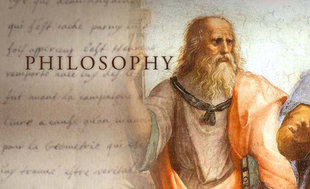- Prices/Payment
- Standard Service US$199.00
- VIP/Rush Service US$299.00
- Statement of Purpose Help
- Dr Robert Edinger, Personal Statement of Purpose Specialist
- Editing/Writing Service
- Mission
- Guarantee/Privacy Policy
- Client Testimony
- Autobiographical
- Disadvantaged Status
- Diversity
- KSA
- Undergrad
- Letters of Recommendation
- Resume /CV
- Interview!
Statements of Excellence for Admission to Graduate School in Philosophy


Search by Degree, Field, or Country of Origin
Samples of My Work for Admission to Graduate School in Philosophy

Help with your Personal Statement of Purpose for Graduate School in Philosophy: MA, PHD.
Make sure that there are faculty that you are interested in working at the program to which you are applying; and name them and say why you want to study under them in particular. Talk to your professors. Ask their advice. Ask them to read over your writing sample and your statement of purpose and give you comments. Then, revise, revise, revise. And get comments from multiple people.
Many schools are able to waive application fees for those who need it. Don’t be afraid to ask about this.
After you fill out my Online Interview Form, I will ask you some specific questions by email if I need any further information. Please also send your resume/CV and or rough draft if you have one.
Noam Chomsky - Humanitarian Crisis.
I want to help you get admitted to graduate school in Philosophy
There are several aspects of the application process to graduate school in Philosophy that require advance planning. The GRE’s, for example, need to be done within at least a few weeks before your earliest application deadline so that the scores will arrive in time.
You will need to send official copies of your transcripts to most programs. You need to figure out which professors will be writing you letters of recommendation and give them sufficient time to do so before the letters are due. You need a writing sample, and you shouldn’t just send in a paper you wrote for a class without revising it multiple times. This writing sample should be carefully coordinated with your Statement of Purpose.
You need to figure out how you’re going to pay for application fees and other expenses. If your transcripts arrive past the application deadline, for example, your chances are slim of being accepted. You need to plan ahead if you are going to be successful.
SOULJOURNS BISHOP GEORGE MCKINNEY,PHILOSOPHER, CLERIC, HUMANITARIAN , OBERLIN.
Most Recently Edited Samples
- Real Estate Finance Master's Degree, Hong Kong, China
- MS, Chinese, Statistics for Technological Advancement
- MS Construction Mgmt, Indian Applicant
- Graphic Design Master's, Art History Background
- PHD Health Sciences Informatics, Chinese
- PHD Economics, Policy Analysis, Chinese
- PHD Earth Sciences, Petroleum Engineering Nigeria
- Master’s Real Estate Development, Latino, Mexico
- Doctor of Special Education, Autism Spectrum
- Masters Real Estate, Los Angeles, Indian
- MS Real Estate, NYC, Harlem, African-American
- Master’s Statistics, Chinese Woman
- Master’s Global Business Journalism, Korean
- Undergraduate, Physics, Chinese
- Diversity Statement, Grad School, Hong Kong
- PHD Statistics, Biomedical Research, Korean
- PHD Epidemiology LOR, Chinese Doctor
- MS Accountancy, Bookkeeping, Vietnamese
- Certificate Program in Global Studies and IR, Mexican-American
- PHD Agricultural Economics, Bangladeshi
Premium Statement Service by Dr. Robert Edinger
With maximum creativity, research as indicated, priority attention, and as many drafts as needed,
Dr Robert Edinger with Son David
drrobertedinger@gmail.com
1-812-675-4937
The Humanitarian Side of Philosophy
Baudelaire on the Political and Humanitarian Power of Art
Baudelaire was a French poet who lived during the 1800s. He wrote an open letter to those in power and of privilege. He says: “Art is an infinitely precious possession, a refreshing and warming drink that restores the stomach and the mind to the natural balance of the ideal.”
A generation before Walt Whitman wrote about why the humanities are essential to democracy, the great poet, essayist, and critic Charles Baudelaire made what remains the most elegant and increasingly timely case for why those in power and those of privilege should use their resources to support art and embrace it as an invaluable political and humanitarian tool.
In “The Salon of 1846”—the sequel to “The Salon of 1845,” the critical debut that launched 24-year-old Baudelaire’s career as an art reviewer—a piece called “To the Bourgeois”, appeared. It was later included in the indispensable 1972 Penguin anthology Baudelaire: Selected Writings on Art and Literature.
Baudelaire essentially issued what was essentially an open letter to the ruling class. He defined the bourgeois as “king, law-giver or merchant” — urging the privileged and the powerful to acknowledge and advance the project of art as essential to a healthy society.
Baudelaire begins with a clear awareness of the power of flattery in persuasion:
“You are the majority, in number and intelligence; therefore you are power; and power in justice. Some of you are “learned”; others are the “haves.” A glorious day will dawn when the learned will be “haves,” and the “haves” will be learned. Then your power will be complete and nobody will challenge it.
Until such time as this supreme harmony is ours, it is just that the mere “haves” should aspire to become learned; for knowledge is a form of enjoyment no less than ownership.
The governance of the state is yours, and that is as it should be, because you have the power. But you must also be capable of feeling beauty, for just as not one of you today has the right to forgo power, equally not one of you has the right to forgo poetry. You can live three days without bread; without poetry, never; and those of you that maintain the contrary are mistaken; they do not know themselves.
Enjoyment is a science, and the exercise of the five senses demands a special initiation that can be achieved only by willingness to learn and by need.
And you need art, make no mistake.
Art is an infinitely precious possession, a refreshing and warming drink that restores the stomach and the mind to the natural balance of the ideal.”
Baudelaire appeals to the self-serving tendencies of the powerful, pointing out art’s concrete usefulness in their daily lives and casting it as a domain of knowledge and experience that is rightfully theirs. With a sort of reverse psychology, he tickles the power-hungry impulses of the bourgeois and rallies them to reclaim art from the “monopoly” of the artists in order to reap its benefits in their own lives:
“A keener desire, a more active reverie, will at such moments prove a relaxation from your daily strivings. But the monopolists have tried to keep you away from the fruits of knowledge, because knowledge is their counter and their shop, to be guarded jealously. If they had denied you the power of creating works of art or of understanding the techniques used in their creation, they would have been proclaiming a truth that you would not have taken offense at, because public business and trade absorb three quarters of your day. As for the leisure hours, they must therefore be used for enjoyment and pleasure.
But the monopolists have decreed that you shall not have the right to enjoyment, because you lack the technical knowledge of the arts, although possessing that of the law and business.
Yet it is only right, if two thirds of your time is taken up by techniques, that the other third should belong to feeling, and it is by feeling alone that you are to understand art; — and that is how the balance of your spiritual forces will be built up… Just as you have extended men’s rights and benefits in your political life, so you have stablished in the arts a greater and more abundant communion.”
Having appealed to how art will serve them, he ends by appealing to their altruism in how they can serve art:
“You are the natural friends of the arts, because some of you are rich and the others learned.
Having given society your knowledge, your industry, your work, your money, you demand payment in the form of bodily, intellectual and imaginative enjoyment. If you recover the quantity of enjoyment necessary to restore the balance of all parts of your being, you will be well filled, happy and kindly, just as society will be well filled, happy and kindly when it has found its general and absolute equilibrium.”
The Zulu Philosophy, Ubuntu
Have you heard of the Zulu Philosophy, Ubuntu?
Ubuntu: umuntu ngumuntu ngabantu (Zulu Philosophy)
Ubuntu means: I am what I am because of who we all are. Or I am a person through other persons. A single straw of a broom can be broken easily, but the straws together are not easily broken!
Ubuntu is the essence of being human. Ubuntu speaks particularly to the fact that you can’t exist as a human being in isolation. It speaks of our ultimate interconnectedness. You can’t be human all by yourself! When you have the Ubuntu quality, you are known for your generosity.
We think of ourselves far too frequently as just individuals, separated from one another. But you are connected because what you do affects the whole world. When you do go deeds, they spread out. You act for the whole of humanity.
Desmond Tutu says: “A person with Ubuntu is open and available to others, affirming of others, does not feel threatened that others are able and good, for he or she has a proper self-assurance that comes from knowing that he or she belongs in a greater whole and is diminished when others are humiliated or diminished, when others are tortured or oppressed.”
Whereas Nelson Mandela says: “Ubuntu does not mean that people should not enrich themselves. The question therefore is: Are you going to do so in order to enable the community around you to be able to improve?”

